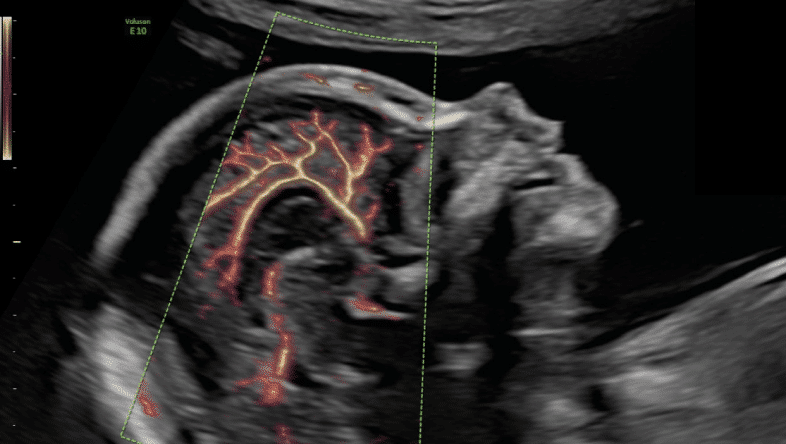
This essential mid-pregnancy ultrasound, often known as the 20-week scan, anomaly scan, or anatomy scan, provides a detailed assessment of your baby’s developing organs and body structures. At Precious Glimpse in Melbourne, our experienced sonographers use advanced imaging techniques to carefully examine your baby’s brain, heart, spine and more ensuring everything is progressing as expected.
By choosing our morphology ultrasound, you gain valuable insights that empower you and your healthcare team to make informed decisions about your pregnancy journey. From confirming proper growth patterns to identifying any potential concerns early and sets the stage for the healthy arrival of your little one.

When to have it: 20-22 weeks
Cost: $320 ($350 on weekends) and then a rebate of ~$91.
Duration: 30-40 minutes
What’s included:
Morphology Scan is considered to be a very safe procedure with no known risks to either the mother or the baby. There is no radiation involved in this scan and it does not use any harmful chemicals.
If you have any concerns about the safety of this procedure, please speak to your doctor or midwife.
Your doctor or midwife will usually recommend that you have your Morphology Scan between 20 and 20 weeks of pregnancy.
Morphology Scans are important in helping to assess the health and development of your baby. This scan can detect some birth defects and conditions, such as spina bifida, that may require further treatment or monitoring.
You should drink plenty of water before your scan. This will help to fill up your bladder, which will make it easier to see your baby on the ultrasound. You should also empty your bladder before the scan begins.
During the scan, a gel will be applied to your stomach. The gel helps to transmit the ultrasound waves and allows them to bounce off your baby. A handheld device called a transducer will be used to create images of your baby on a screen.
The sonographer performing the scan will look at different parts of your baby’s body to make sure that they are developing normally. This includes the head, brain, face, spine, heart, stomach, kidneys and limbs. The scan usually takes about 30 minutes to complete.